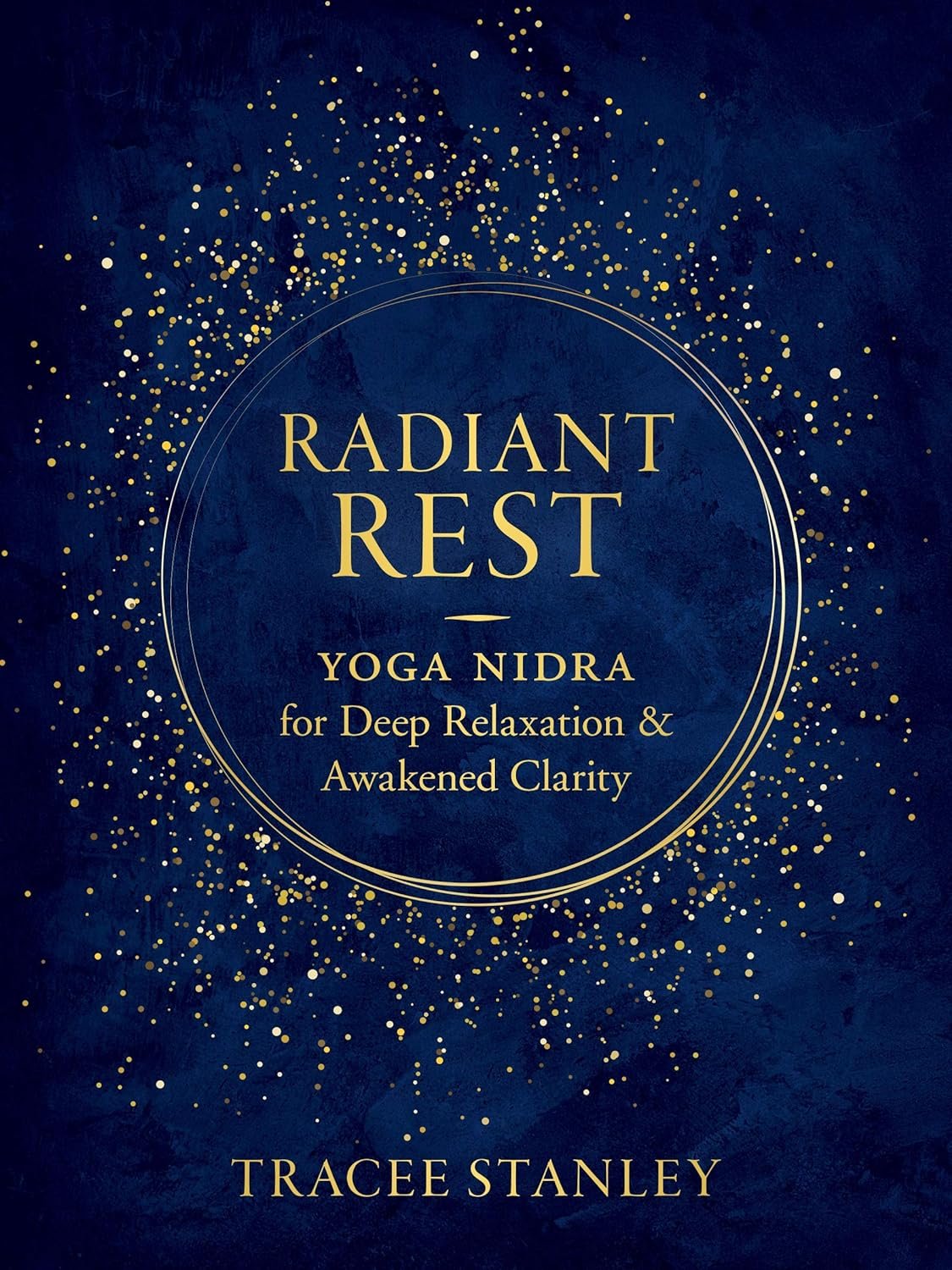Reading for yoga teachers
We’re often asked for recommended reading for yoga teachers; about yoga generally, about specific aspects of yoga, such as Yoga Nidra, and about running a business.
So, here’s our master list of recommended and suggested reading for yoga teachers, in no particular order.
The links provided are – where possible – to purchase the book from Bookshop.org which has a very important mission – to support local book shops. Amazon links are also available. In the interests of full disclosure we may receive a small payout when you use these links, which serves to support our little studio too. But please do, of course, shop around if you wish.
Radiant Rest: Yoga Nidra for Deep Relaxation and Awakened Clarity
By Tracee Stanley
This special book is a beautiful guide to the practice of Yoga Nidra.
Filled with techniques and insights, the book offers a path to inner peace and heightened awareness through this ancient practice.
Tracee acknowledges some of the challenges that yoga has experienced and doesn’t shy away from controversial subjects, but all that challenge is held in accessible, beautiful language that inspires a beneficial and ongoing Yoga Nidra practice.
Yoga Anatomy
By Leslie Kaminoff and Amy Matthews
You might this additional anatomy book useful to deepen your anatomical understanding and how the anatomy of the body applies to yoga asana.
Bhagavad Gita
By Eknath Easwaran
The Bhagavad Gita transmits deep, wonderful philosophical learnings and concepts, through an engaging story, and a dialogue between two characters.
Any transliteration of the Bhagavad Gita will be great for your training, however this translation by Eknath Easwaran is highly recommended.
Four Chapters on Freedom
By Swami Satyananda Saraswati
A great alternative, or addition, to the Yoga Sutras suggested below.
The Yoga Sutras of Patanjali
By Sri Swami Satchidananda
The Yoga Sutras of Master Patanjali are a key text underpinning your learning of yoga philosophy.
Read the book from front to back, or from back to front (maybe?), or pick a sutra at random to read before you leave the house, to cogitate on it throughout the day.
This wonderful book explores the integration of Eastern philosophies with Western psychology, focusing on the chakra system. It examines how childhood experiences shape psychological patterns and manifest in physical health, relationships, and spirituality.
Judith offers methods to balance chakras for holistic healing, focusing on self-awareness, emotional intelligence, and personal growth. The book serves as a guide for understanding and transforming psychological challenges into opportunities for spiritual evolution, blending yoga’s ancient wisdom with modern therapeutic approaches.
Eastern Body Western Mind
By Anodea Judith
The Upanishads
Translated by Eknath Eawaran
The Upanishads offers profound insights into the nature of existence, consciousness, and the self, exploring themes such as the relationship between the individual soul (Atman) and the universal consciousness (Brahman) and the paths to transcendence.
Easwaran's accessible translation captures the essence of these teachings.
Through dialogues and stories, the Upanishads delve into timeless questions about the purpose of life and the nature of reality, guiding readers towards deeper understanding and spiritual awakening.
Effectiveness and Productivity
Reading for Yoga Teachers
The 7 Habits Of Highly Effective People
By Stephen R. Covey
A holistic approach to personal and professional development.
Covey outlines seven principles for success: be proactive, begin with the end in mind, put first things first, think win-win, seek first to understand, then to be understood, synergise, and sharpen the saw.
These habits encourage individuals to take initiative, prioritize goals, communicate effectively, collaborate with others, and continuously improve.
Covey's timeless wisdom aligns actions with values and fostering growth in both personal and professional spheres for lasting effectiveness and fulfillment.
Slow Productivity
By Cal Newport
"Slow Productivity" by Cal Newport presents a counterintuitive, albeit very successful, approach to achieving more meaningful work in less time.
Newport advocates for a deliberate, focused, and intentional approach to productivity, contrasting the common notion of multitasking and constant busyness.
He emphasises the importance of ‘deep work’; where individuals immerse themselves in cognitively demanding tasks without distraction.
By prioritising quality over quantity and embracing a slow, deliberate pace, Newport argues that individuals can achieve greater productivity, creativity, and satisfaction in their work.
The book offers practical strategies for cultivating a slow productivity mindset and optimising workflow for optimal results.








